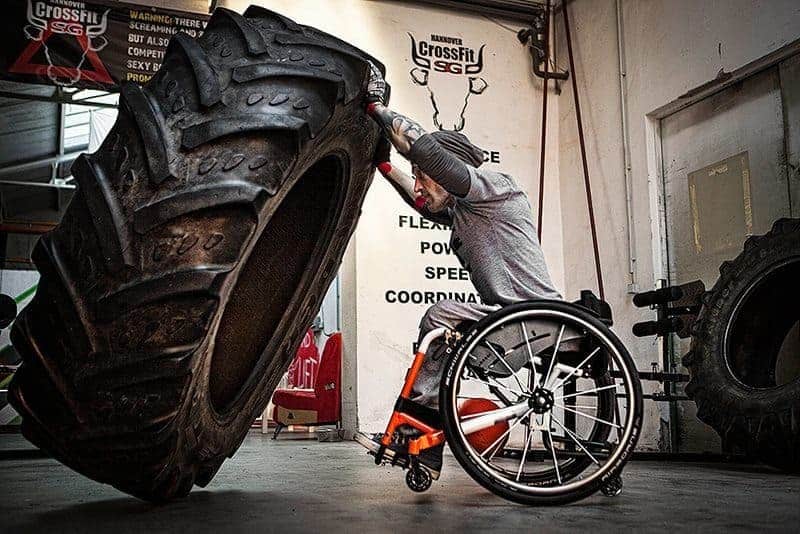5 Proven but Ignored Secrets to Breaking Old Habits
Let me guess, you’re trying to break an old habit, and right now — you’re fuming.
Your plans of exercising, eating healthier, procrastinating less have failed again.
Instead, you’re back to sofa lounging, TV-watching, and fast-food feasts.
It is one thing to understand how important good habits are to your health, happiness, professional success.
Sure, you had good intentions and SMART goals.
You were full of motivation.
You did well for some time, but — it’s all gone now.
So what on Earth has happened?
Where did you go wrong?
Let’s get it clear from the beginning: changing habits, bad or good, is hard.
Habits are wired into our brains.
Once you’ve created a habit, your brain keeps craving it, regardless of the price.
So how can you break this vicious cycle and get rid of your bad habits?
Don’t worry — there are actual tips that can help you break old bad habits once and for all.
1. Nature abhors a vacuum — so fill that gap
You may have heard that people who quit smoking gain weight.
One reason for that is they miss putting the cigarette into their mouth, so to satisfy their ‘oral gratification’, they turn to food.
Whether it’s about putting a cigarette to your mouth, snacking while watching TV, or wasting your time on social media — getting rid of a habit creates a gap.
Your brain will want to fill immediately.
Because all habits, good or bad, serve a purpose.
Your snacking may be a way to manage stress (I know it is for me), your TV binges help you forget about a stressful day at work, and your Snapchat checking – relieves your sense of loneliness.
You can try fighting against those autopilot movements, but that just adds to the effort and stress levels.
A better solution is to fill in the gap with a good habit.
Instead of snacking on sweets, have a bowl of carrot sticks handy.
If you feel lonely, write a brief email or ring a friend instead of wasting hours on social media.
Go for a walk or clean your desk to relieve boredom instead of gossiping.
Find a substitute for your bad habit — and have it ready.
Make it part of your plan: not only what, when and how but also – what you are going to do instead to fill in that emotional gap.
That is the best method for breaking old habits.
2. Limit the temptations to engage in your bad habits
I’ve met people who think that giving up a bad habit is about ‘willpower building’ and that’s why you should continue living your life as it is — with all the usual temptations surrounding you.
Well, while I agree that giving up a bad habit tests your willpower, eliminating temptations is a much wiser move.
We overestimate our ability to resist temptations.
However, studies show that those who limit temptations are more successful at achieving their habit goals.
People who keep only a fruit bowl on their kitchen counter weigh less than people who have other food displayed.
If you truly want to break that bad habit, don’t underestimate the power of temptations.
Look around you — your house, workplace, wherever else you typically spend your time and might be exposed to temptations, and eliminate what you can.
If you want to spend less time on the Internet, turn it off.
If you want to stop gossiping, limit the time you spend with people you usually gossip with.
The ultimate approach is to eliminate any other choices and making your new habit the default option.
Keeping a fruit bowl on your kitchen counter and a stack of cut-up vegetables in the fridge, coupled with no other snacks in the house, will ensure that you snack only on healthy options.
If you want to exercise in the morning — try sleeping in your workout clothes.
When you get up — you don’t have to think whether you’re going for a workout this morning —you just go.
3. Plan it on a bad day
A word of warning before you read on if you’ve read a lot about the importance of being motivated and believe that ‘motivating yourself’ solves bad days, what comes next may be a shock to you.
I don’t subscribe to the whole motivational hype.
I believe that since you’ve got this far in seeking a solution to your bad habit, you’re not only aware of the problem, you’re also motivated to change it.
How do you do it?
Plan your habit change on a bad day.
Yes, not on a day when you feel full of energy and motivation to change your bad habits and the world, but on a day you feel flat and unmotivated.
We commonly overestimate how much time and effort various projects will take.
It’s even worse with predicting our behavior in the future.
The so-called empathy gap is a cognitive bias that makes us underestimate the influence of strong emotional states on our behavior in the future.
So with your ‘cold’ head-on, you may think: ‘Nah, I’d be alright with that diet.
I’ll just distract myself when I’m hungry’, minimizing the power of feeling hungry, or craving that chocolate bar.
So when you’re all excited and rational, pumped with motivation and inspiration, you’re thinking you can move mountains.
And since you can move mountains, why shouldn’t you be able to move your body and go for a run after work.
Well, after work, you’re tired, emotionally drained, and frustrated with the long drive home.
Not to mention hungry, and you’d rather plant yourself in front of the TV than go out running in the rain.
This is how your fabulous plan to exercise regularly goes out of the window.
However, if you plan the change on a bad, or at least on an average day, you will plan for days like this one.
And if you can make yourself work out, own a day like that — imagine how much easier it will be when you brimming with energy and enthusiasm!
4. Make your new habit so small you can’t fail
A few years ago, I read about Stephen Guise’s One Push-Up Challenge.
Stephen resolved to do one push-up per day to get into shape.
And he did.
He also successfully changed many other habits following the same strategy: making the step required so small, so laughingly small, he couldn’t do it.
His book has been an immense success and helped thousands of people successfully change their habits.
I’m a big fan of this approach — it’s much more efficient and effective longer term than the best motivational speeches and inspirational quotes.
If you want to change and began breaking bad habits, start small — so small you can’t fail.
Want to get into regular exercise?
Start with one push-up.
Want to meditate regularly?
Resolve to meditate 1 minute.
Admit it, it doesn’t sound overwhelming, even when you tired, or had a terrible day?
5. Reward your new behavior with something that matters to you
One of the hardest things when changing your behavior from an old bad habit to a new one is to keep it going.
The best way to do it is to make your brain crave the new behavior.
How?
By making it crave the reward.
Ideally, you want to do it because you feel better, happier, fulfilled, but those intrinsic rewards don’t always happen, and are harder to feel at the beginning of your journey.
That’s why it may be helpful to use external, material rewards for a while.
I don’t mean in the ‘I’ll have a carrot, because I know carrots are healthy and good for me’ way.
I mean ‘I really, really want to watch this show’ way.
The best way to reward yourself for the desired behavior is to reward yourself with things that really make you tick.
You would be surprised to know how many people try rewarding themselves with stuff they’re not really interested in, or don’t reward themselves at all.
No wonder they struggle to make their new habits work on autopilot.
Try temptation bundling to help break those bad habits
Are you tempted to watch your favorite show but you know you should work out?
Let yourself watch the show only in the gym (or only after your workout).
Hate going to the dentist, but love playing that silly game on your phone — let yourself play the game only in the dentist waiting room.
Whether you’re driven by money and fame, or making the world a better place, make sure the reward you attach to your habit matches the motivation that drives you.
It’s time to admit it — you’ve invested too much time and energy in transforming your life to accept that destructive behaviors still take over.
And even though old habits die hard, there are ways in which you can outsmart your brain wired to crave those unhealthy, undesirable behaviors.
It’s simple — pick one tip.
Start with the easiest one.
Implement it and watch your life transform.
You deserve it.











